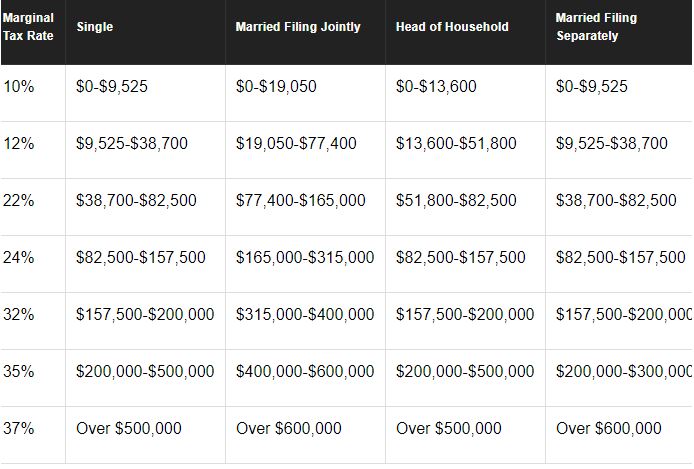I think I speak for most of us – if not all of us – when I say that taxes can be complicated.
But, unfortunately, as a real estate Investor, taxes are a big part of our life and in order to be successful, we have to stay informed.
We’ve got property taxes, sales tax, write-offs, state, federal, the list feels never-ending sometimes.
Luckily for us though, we get a ton of perks when it comes to taxes, which most individuals can’t claim.
On top of the plethora of items we can write off, there’s another tax benefit special to real estate Investors – 1031 Tax Deferred Exchanges.
If you’re looking to grow your portfolio and continue building wealth through REI, this could be a very viable option for you. There are some fantastic benefits and a LOT to learn about the process.
*I would just like to disclaim that I am not a tax adviser or financial planning expert and you should consult one before you begin conducting a 1031 exchange.*
Capital Gains Tax
Before we talk about 1031 Exchanges, you need to have an understanding of what Capital Gains Tax is and how it works, since it’s the driving factor for Investors to participate in an exchange in the first place.
The dictionary definition is, “a tax levied on profit from the sale of property or of an investment.”
Capital Gains Tax can be broken up into two categories:
- Long-Term: Assets that have been held for a year or more and are taxed at 0%, 15%, or 20% depending on which bracket you fall in.
- Short-Term: Assets that have been held for less than 1 year and are taxed as ordinary income.
Under the new Tax Cuts and Jobs Act, the Long-Term Capital Gains Tax rates are as follows:
On the short-term capital gains side, I mentioned that they are still considered ordinary income, so the effect is more obvious. If your marginal tax rate has changed, your short-term capital gains tax will change as well. For comparison, here are the newly passed 2018 tax brackets:
Basically, when you go to sell a property, you’re most likely going to be hit with a massive tax bill whether you’ve owned it for 3 months or 3 years. You’ll notice that Short-Term Capital Gains are taxed at a higher rate. This is done deliberately to discourage short-term trading and backs up our philosophy that real estate is a long term play and you’ll see the most benefit from a buy and hold strategy.
Depreciation
Depreciation is also an essential concept for understanding the true benefits of a 1031 exchange.
Depreciation is the percentage of the cost of an investment property that is written off every year, recognizing the effects of wear and tear. When a property is sold, capital gains taxes are calculated based on the property’s net-adjusted basis, which reflects the property’s original purchase price, plus capital improvements minus depreciation.
If a property sells for more than its depreciated value, you may have to recapture the depreciation. That means the amount of depreciation will be included in your taxable income from the sale of the property.
Since the size of the depreciation recaptured increases with time, you may be motivated to engage in a 1031 exchange to avoid the large increase in taxable income that depreciation recapture would cause later on.
Depreciation recapture will be a factor to account for when calculating the value of any 1031 exchange transaction—it is only a matter of degree.
What is a 1031 Tax Deferred Exchange?
Under Section 1031 of the United States Internal Revenue Code, “a taxpayer may defer 
In other words, whenever you sell a business or investment property and you have a gain, you generally have to pay tax on the gain at the time of sale. IRC Section 1031 provides an exception that allows you to postpone paying tax on the gain if you reinvest the proceeds in similar property as part of a qualifying like-kind exchange.
The most important thing to take away from this is that the gain is tax-deferred, NOT tax free. You will have to pay the taxes at a later date when you decide to sell the property for good.
Related: 6 Signs it May Be Time to Sell Your Indianapolis Rental Property
What Does Like-Kind Mean?
Both the relinquished property you sell and the replacement property you buy must meet certain requirements.
According to the IRS, Like-Kind is defined as:
“Like-kind property is property of the same nature, character or class. Quality or grade does not matter. Most real estate will be like-kind to other real estate. For example, real property that is improved with a residential rental house is like-kind to vacant land. One exception for real estate is that property within the United States is not like-kind to property outside of the United States. Also, improvements that are conveyed without land are not of like kind to land.”
Furthermore, a like-kind property must be an investment property, not a personal one.
It’s imperative that you fully understand like-kind parameters and that you consult a tax adviser or other expert before engaging in this process. If your property is not actually like-kind, the IRS will tax the full amount of your sale but you won’t find out until you file forms to claim the 1031 exchange tax advantage.
You must report an exchange to the IRS on Form 8824, Like-Kind Exchanges, and file it with your tax return for the year in which the exchange occurred.
Types of 1031 Tax Exchanges
- Simultaneous – This exchange occurs when the replacement property and relinquished property close on the same day.
Even the slightest delay could result in disqualification and cause immediate payment of full taxes. - Delayed – Probably the most common exchange type for Investors, the delayed exchange occurs when the exchanger relinquishes the original property before acquiring a replacement property.
- Reverse – A reverse 1031 exchange represents a tax deferment strategy when for a variety of reasons, the replacement property must be purchased before the relinquished or old property is sold. It is complex and requires careful planning.
- Construction/Improvement – This exchange allows taxpayers to make improvements on the replacement property by using the exchange equity.
In other words, a Investor could use their tax-deferred dollars to enhance the replacement property while it is placed in the hands of a qualified intermediary for the remainder of the 180 day period.
Rules of a 1031 Exchange
- Time Rules – You have 45 days to identify a new property after the sale of an existing one
and you have 180 days to purchase the property with the funds received from the sale of the old property.
The 1031 exchange begins on the earliest of either the date the deed records, or the date possession is transferred to the buyer.
The 1031 exchange ends on the earlier of 180 days after it begins, or the date the exchanger’s tax return is due, including extensions for the taxable year in which the relinquished property is transferred.
The identification period is the first 45 days of the exchange period. The exchange period is a maximum of 180 days. If the exchanger has multiple relinquished properties, the deadlines begin on the transfer date of the first property. These deadlines may not be extended for any reason, except for the declaration of a presidentially declared disaster.
With these time constraints in mind, it’s vital to plan well in advance so you aren’t rushed into making a poor investment decision.
- Title Rule – This rule requires the taxpayer who is listed on the old property, be the same taxpayer listed on the new property. This goes for trusts and corporations as well.
Note: If you are married and sell the old property, then your spouse must also be on the title to the new property.
- Intermediary Rule – In a 1031 exchange, sellers cannot have access to the money in between the sale of the old property and the purchase of the new one.
You are required to employ an independent third party, known as a Qualified Intermediary (QI). The QI cannot be related to you in any way and they must hold the proceeds of the sale in a separate account until the purchase of the new property is completed.
This is one of the easiest requirements to fill, yet surprisingly is one of the rules that is broken the most, so don’t get burned thinking you can get away with it.
- Greater or Equal Value – In order to completely avoid paying any taxes upon the sale of your property, the IRS requires the net market value and equity of the property purchased must be the same as, or greater than the property sold. Otherwise, you will not be able to defer 100% of the tax.
A Taxpayer Must Not Receive “Boot” from an exchange in order for a Section 1031 exchange to be completely tax-free. Any boot received is taxable to the extent of gain realized on the exchange.
In other words, you can carry out a partial 1031 exchange, in which the new property is of lesser value, but this will not be 100% tax free. The difference is called “Boot,” which is the amount you will have to pay capital gains taxes on.
This option is completely okay, and often used when a seller wants to make some cash, and is willing to pay some taxes to do so.
An example of this would be if your original property is sold for 100K and the property you wish to exchange under section 1031 is worth 80K, you would need to pay the normal capital gains tax on the 20K “boot.”
Pros of a 1031 Tax-Deferred Exchange
There are several reasons why 1031 exchanges are an attractive option for property Investors:
- Tax Deferment – The most obvious and major reason for participating in a 1031 exchange is
the tax deferment benefit which we’ve already discussed at some length so I won’t beat a dead horse.
- Estate Planning – Another, possibly lesser known benefit of participating in a 1031 exchange, is that you can take that tax deferment with you to the grave. If your heirs inherit property received through a 1031 exchange, its value is “stepped up” to fair market, which wipes out the tax deferment debt.This means, that if you die without having sold the property obtained through a 1031 exchange, the heirs receive it at the stepped up market rate value, and all deferred taxes are erased. An estate planner should be consulted to take maximum advantage of this opportunity.
- Asset Accumulation – A 1031 exchange is a powerful wealth-building tool. There are no limits on the number of subsequent exchanges, allowing an investor to exchange into progressively larger properties over time. Also, since like-kind requirements are so broad, this gives you an opportunity to diversify your property portfolio if you wish.
Co-Founder and CEO of Spartan Value Investors, Clayton Mobley, has seen firsthand the benefits of utilizing 1031 exchanges.
“At Spartan, we love the 1031 process (both personally and professionally) because it’s an amazing tool for making the most out of appreciation equity. When done right, this process basically allows you to leapfrog, tax-free, from appreciated real estate to a new property (or even an entire portfolio) with better cash flow or long-term appreciation potential. But, the 1031 can also play a larger role in a more long-term wealth and legacy preservation strategy, which makes it a versatile and lucrative tool that any real estate investor should become familiar with.”
Cons of a 1031 Tax-Deferred Exchange
While 1031 exchanges can be a beneficial strategy, there are some challenges you should be aware of:
- Strict Regulations – There are many rules and regulations to follow when completing a 1031 exchange, and you may find some difficulty when trying to comply. If done incorrectly, you could have to pay the taxes or even penalties.
- Reduced Basis for Depreciation – In a 1031 exchange, the amount of depreciation that can be claimed on a replacement property is based upon the adjusted basis of the relinquished property at the time of the exchange. This means that the amount of depreciation you can claim on your replacement property will generally be lower than if you had acquired the replacement property without use of a 1031 exchange.
- Not Tax Free – It is important to note that this exchange is tax deferred, not tax free. This means that if or when you ultimately sell your replacement property, without another exchange, you will be responsible for paying taxes on all of the capital gains and depreciation recapture you have deferred through prior exchanges. However, as mentioned above, this is potentially avoided through careful estate planning.
Alternative to the 1031 Tax Exchange
If you’re not interested in reinvesting in more properties, but would still like to defer capital gains tax payment, a Structured Sale may be a good solution for you.
Structured Sales are drafted pursuant to Section 453 of the Internal Revenue Code just like an installment sale note or seller carry back note. Your capital gain is recognized, but is deferred over a predetermined period of time that you choose.
Exeter Tax Deferred Solutions explains:
Using the Structured Sale reduces your risk exposure related to the seller carry back note because the buyer must pay for the property(ies) or asset(s). The Structured Sale receives the sale proceeds and may defer the payment of your capital gain taxes (but not depreciation recapture taxes) by preventing your receipt of the sale proceeds until a future date when the periodic principal payments are received by you.
The periodic payments are made or distributed to the investor pursuant to the payment terms that the investor selected when they set-up their Structured Sale. You could call it a self-directed installment note or annuity because the investor determines the payment terms of the Structured Sale. The investment options backing a structured sale strategy can vary depending on the investor’s goals, objectives and risk tolerance.
1031 Tax Exchange Mistakes and Advice
We spoke with Melissa Doell, Attorney at Law with Frost Brown Todd LLC and she quoted two major mistakes that she sees Investors make:
- “Not taking into account all tax generating aspects of the transaction. In addition to gain that may be recognized from the exchange, there may be gain due to depreciation recapture that is not deferred by the exchange.”
- “Not understanding the future tax impact of the exchange. The basis in the replacement property will likely be affected by doing the exchange.”
She also shared a few key pieces of advice:
- “Understand the process. A typical “forward”
exchange involves selling property (the “relinquished property”) through a qualified intermediary (“QI”) and then purchasing property (the “replacement property”) through the QI. The QI holds the proceeds from the relinquished property and (typically) applies them to the purchase of the replacement property. If planned and executed correctly, the taxable gain on the sale of the relinquished property may be deferred until the later sale of the replacement property (or possibly even later if, for example, the replacement property is exchanged).”
- “Talk with your tax advisor to make sure the exchange is going to have the intended effect. There are several rules that must be followed and the calculation of the taxable gain is complicated. You will want to make sure that you follow the rules and the outcome is clear. Some taxpayers think that if they exchange property, deferral of taxable gain is automatic.
That is not the case. For example, a residence must be “held for investment or in a trade or business” to qualify. A personal residence does not typically qualify unless it has been rented for a sufficient period of time to establish abandonment of personal use and the holding for a qualified use.” - “Plan well in advance. The purchase agreement for both the relinquished property and the replacement property should require the other party to cooperate with the exchange. Otherwise, the taxpayer risks “being held hostage” to the other side. The other party will typically have to consent, prior to the closing, to your assignment of the purchase agreement to the QI. This shouldn’t be a big deal, but without the appropriate contract language, the other side may be able to make it one.”



 and you have 180 days to purchase the property with the funds received from the sale of the old property.
and you have 180 days to purchase the property with the funds received from the sale of the old property.  the tax deferment benefit which we’ve already discussed at some length so I won’t beat a dead horse.
the tax deferment benefit which we’ve already discussed at some length so I won’t beat a dead horse.






